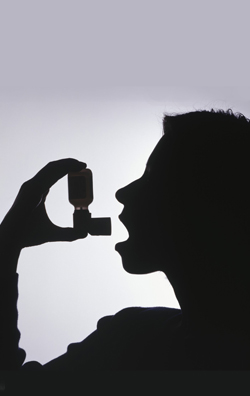
Multiple sclerosis also known as disseminated sclerosis or encephalomyelitis disseminate is a type of inflammatory disease in which the outer protective covering (myelin) of the brain and spinal cord is damaged. As a result there is impaired function of all the affected nerves of the body and interruption of communication between the brain and the different other organs of the body. Presenting symptoms include physical, mental even psychiatric problems. The most common presentation is weakness or numbness which may progress to paralysis may occur typically on one side of the body.
Multiple sclerosis may present in different forms namely as relapsing forms characterized by isolated episodes of attacks or progressive form in which the symptoms gradually worsen over years. It is often seen that in between two episodes of attack the patient may remain symptom free although symptoms due to permanent neurological damage persists especially in the advanced stages of the disease.The exact underlying cause of multiple sclerosis is yet to be identified although it is thought that destruction of the myelin cells might occur when the immune system of the body wrongly attacks the myelin cells of one’s own body. Another possible cause is inadequate or impaired functioning of the myelin producing cells. It is also thought that presence of certain genetic factors or suffering from certain type of infection may lead to triggering of the immune system to attack the self myelin cells.
Till date no cure is available for multiple sclerosis however drugs are available to hasten recovery following an attack, arresting of the disease to some extent and management of the symptoms.It was estimated in the year 2008 that worldwide about 2 to 2.5 billion people are affected with multiple sclerosis. The disease is more commonly seen in women between 20 and 50 years of age.
Symptoms
The different presenting symptoms of multiple sclerosis vary from person to person as the nature and severity of the symptoms depends upon the type of nerve involvement. Common presenting symptoms include
1) Loss of sensation or change in perceiving heat, cold etc, tingling, numbness, weakening of muscles, painful spasm in the affected muscles, difficulty in moving the muscles which may progress to complete paralysis in the long run, abnormal movement which may range from change in gait, normal posture to complete lack of co-ordination etc
2) Feeling of electric shock during certain neck movements usually during backward bending of the neck etc.
3) Difficulty in speaking and swallowing.
4) Visual problems namely double vision, painful vision, blurring of vision etc. Sometimes partial even complete loss of vision may also occur.
5) Increased tiredness, lightheadedness
6) Inability to control bowel and bladder movements leading to involuntary defecation and urination respectively
Other than the above mentioned physical symptoms multiple sclerosis may lead to clouding of thoughts, poor judgmental capacity, certain psychiatric problems like depression, frustration, mood swings etc.Usually the symptoms begin as muscle related problems in more than 45% patients, visual problems (mainly due to optic neuritis) in 20% cases brain stem dysfunctions like insensitivity to pain, difficulty in swallowing, speaking etc and in the rest of the people combination of all the above symptoms may occur .
The progression of the symptoms can also take two main forms; these are flare ups or relapses characterized by episodes of sudden worsening of existing milder forms of symptoms lasting for weeks to months followed by improvement of the (occurs in about 85% of the total patients) symptoms and other one is progressive form in which there is slow deterioration of the existing symptoms over years without any intermediate period of improvement (occurs in about 10-15% of the total patients).
Sometimes the above mentioned two patterns of the disease may occur in the same patient. Usually the episodes of relapse occur suddenly and rarely more than twice in a year. The attacks of relapse are usually precipitated by certain factors namely sudden change in environmental temperature (as during spring or summer season), stress, certain type of viral infections namely common cold, influenza, digestive tract infection etc, vaccination, immediately after giving birth (although as a whole the episodes of relapse decrease during pregnancy during the first few months following delivery the risk of relapse is increased), physical injury, breastfeeding etc.





